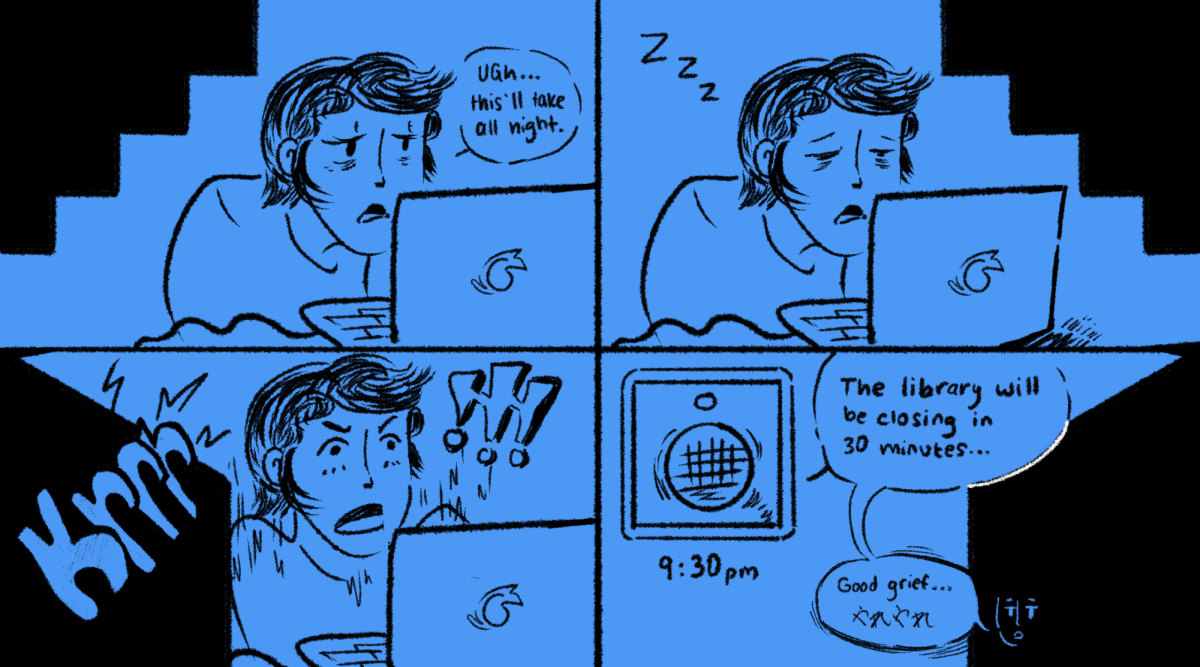
Last Wednesday, it was impossible to step foot on campus without seeing droves of women dressed in shiny tank tops with Greek letters and clustered together in front of the Triton Statue by Price Center. While the new members were anxiously accepting their recruitment bids, some of these ladies had bags of exhaustion under their eyes from completing the time-intensive recruitment process. Most of UCSD is oblivious to the Greek community, only pausing occasionally to ponder its strange existence. Let’s stop for a moment and ask ourselves: Why is Greek life still a thing?
All the way back on Dec. 5, 1776, the first Greek letter organization was founded, according to San Jose State’s website about the history of fraternities and sororities. Secret societies preceded this club, but it was the first to include the iconic Greek symbols. This fraternity marketed itself as a club that was “encouraging students to think for themselves,” according to Rehoboth Journal. So there you have it: Greek Life was created to encourage critical thinking skills, but it remains questionable whether they achieved this ambitious goal.
Sororities appeared about a century after fraternities in 1867. During the Civil War, a lot of colleges were shut down, and according to Rehoboth Journal, many fraternity brothers were actually forced to battle against each other. The reworking of higher education after this intense conflict created an opportunity for sororities to establish themselves, despite having to contend with “restrictive social customs, unequal status under the law and the underlying presumption that they were less able than men,” as quoted by the Rehoboth Journal.
Women successfully fought for the creation of sororities, and this certainly sounds empowering — but is it really? While the Greek system may present itself as a powerhouse of critical thinking and community support, let’s examine the actual values encouraged by the Greek system.
One important problem is its tendency to organize groups of people into a status hierarchy. Sites like GreekRank.com allow students to look up sororities and fraternities and rank them as “top tier” or “lower tier.” These rankings are often accompanied with comments on the members’ looks. In our increasingly superficial society this is not a problem the Greek community has to face alone, as even professors experience this on RateMyProfessors.com, but the Greek community exemplifies this issue to a new extreme. This is especially the case for sorority members and recruits.
Nothing about the recruitment process is natural or encourages young and impressionable women to value themselves. The emphasis is on appearance and uniformity, as each sorority picks specific guidelines for its dress code. The desire to make something of oneself and garner the approval of peer groups often overcomes these ladies with stress.
Although grades, philanthropy and other forms of academic achievement are emphasized in the presentation of an informational powerpoint at the beginning of the recruitment process, the meaning of these words is proven to run only skin-deep in the Greek community. Potential recruits spend days parading around in specific outfits in hopes of gaining popularity and an invitation to come back.
The UCSD Greek community consists of three branches: the Interfraternity Council, the Multicultural Greek Council and the Panhellenic Council (for sororities). Each fraternity and sorority must submit to the rules designated by its Council members. The Multicultural Greek Council is a group of nine fraternities and nine sororities which align themselves with a specific racial and cultural inheritance. Their aim is to foster cultural diversity and understanding by dividing students into closed groups of certain races — which, of course, makes total sense. What better way could there be to encourage people to understand each other’s differences and bridge communication between distinct cultures than to form exclusive societies?
In the end, the Greek community is one big can of worms, and there’s no way to unravel every set of concerns that is created by its presence on campus. Sometimes it makes beneficial contributions, such as exciting social and charitable events. At other times, it is responsible for racist scandals such as the “Compton Cookout” five years ago, which involved a ghetto-themed frat party, as reported by ABC10 News.
Many students, upon their enrollment at UCSD, are immediately fearful of the college’s reputation for being socially dead. Often the Greek community exists as an alternative to spending weekends with Netflix and a gallon of ice cream. Each class of freshmen should be educated that this is, in fact, not the case. It is possible to have a life as an undergraduate student at UCSD — a fulfilling, unique life — without paying dues.











